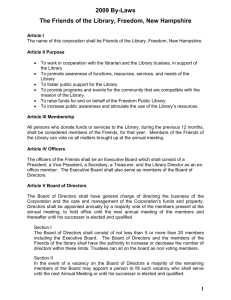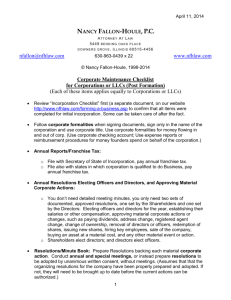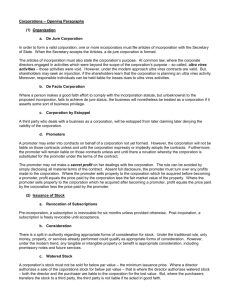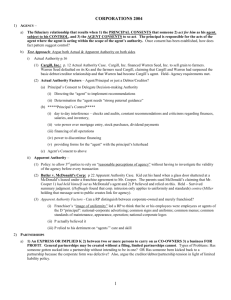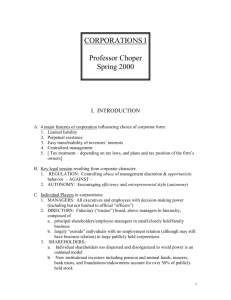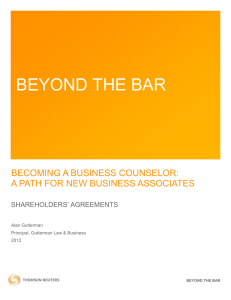Limitations on business corporation.
advertisement
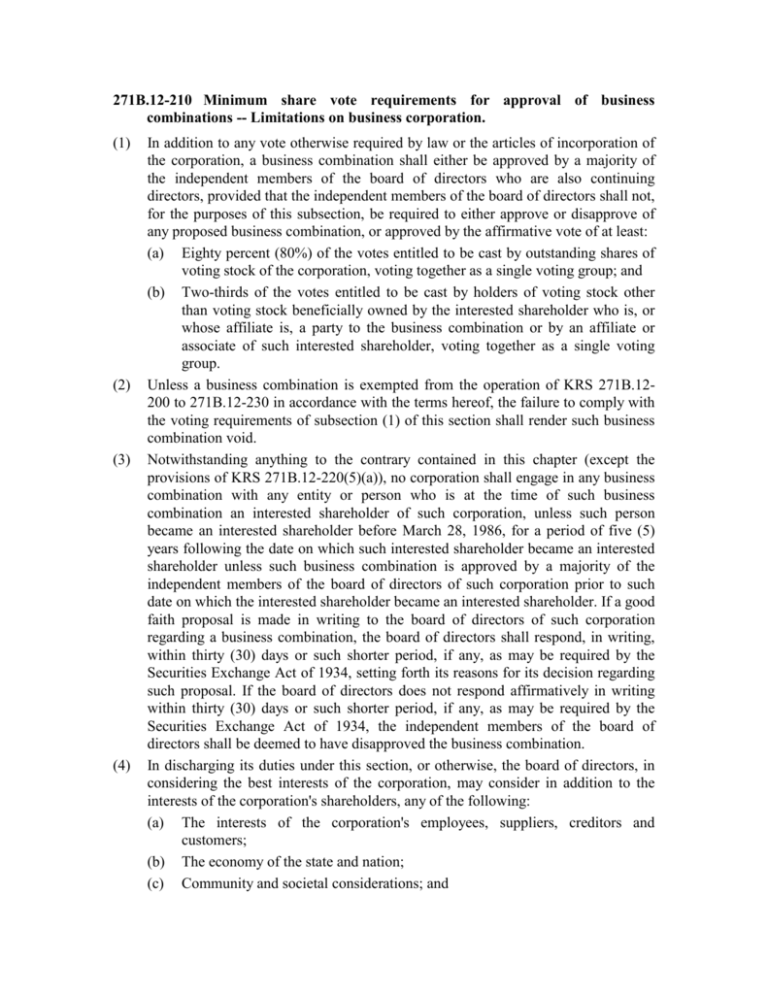
271B.12-210 Minimum share vote requirements for approval of business combinations -- Limitations on business corporation. (1) (2) (3) (4) In addition to any vote otherwise required by law or the articles of incorporation of the corporation, a business combination shall either be approved by a majority of the independent members of the board of directors who are also continuing directors, provided that the independent members of the board of directors shall not, for the purposes of this subsection, be required to either approve or disapprove of any proposed business combination, or approved by the affirmative vote of at least: (a) Eighty percent (80%) of the votes entitled to be cast by outstanding shares of voting stock of the corporation, voting together as a single voting group; and (b) Two-thirds of the votes entitled to be cast by holders of voting stock other than voting stock beneficially owned by the interested shareholder who is, or whose affiliate is, a party to the business combination or by an affiliate or associate of such interested shareholder, voting together as a single voting group. Unless a business combination is exempted from the operation of KRS 271B.12200 to 271B.12-230 in accordance with the terms hereof, the failure to comply with the voting requirements of subsection (1) of this section shall render such business combination void. Notwithstanding anything to the contrary contained in this chapter (except the provisions of KRS 271B.12-220(5)(a)), no corporation shall engage in any business combination with any entity or person who is at the time of such business combination an interested shareholder of such corporation, unless such person became an interested shareholder before March 28, 1986, for a period of five (5) years following the date on which such interested shareholder became an interested shareholder unless such business combination is approved by a majority of the independent members of the board of directors of such corporation prior to such date on which the interested shareholder became an interested shareholder. If a good faith proposal is made in writing to the board of directors of such corporation regarding a business combination, the board of directors shall respond, in writing, within thirty (30) days or such shorter period, if any, as may be required by the Securities Exchange Act of 1934, setting forth its reasons for its decision regarding such proposal. If the board of directors does not respond affirmatively in writing within thirty (30) days or such shorter period, if any, as may be required by the Securities Exchange Act of 1934, the independent members of the board of directors shall be deemed to have disapproved the business combination. In discharging its duties under this section, or otherwise, the board of directors, in considering the best interests of the corporation, may consider in addition to the interests of the corporation's shareholders, any of the following: (a) The interests of the corporation's employees, suppliers, creditors and customers; (b) The economy of the state and nation; (c) Community and societal considerations; and (d) (5) The long-term as well as short-term interests of the corporation and its shareholders, including the possibility that these interests may be best served by the continued independence of the corporation. Notwithstanding KRS 271B.6-020 and any other provision of this chapter, and unless otherwise provided in the articles of incorporation before the creation or issuance of any rights or options as set forth herein, in considering the interests of the corporation's shareholders, the board of directors of a corporation may, before, on or after July 15, 1988, create and issue rights or options pursuant to KRS 271B.6-240 which may contain provisions which adjust the option price or number of shares issuable under such rights or options in the event of an acquisition of shares or a reorganization, merger, consolidation, sale of assets or other occurrence involving such corporation. Such rights or options may also include conditions that prevent the holder or holders of at least a specified number or percentage of the outstanding shares of the corporation, including subsequent transferees of the holder, from exercising those rights or options. Effective: July 15, 1988 History: Amended 1988 Ky. Acts ch. 22, sec. 2, effective July 15, 1988. -- Amended 1986 Ky. Acts ch. 202, sec. 10, effective March 28, 1986. -- Created 1984 Ky. Acts ch. 355, sec. 2, effective July 13, 1984. Formerly codified as KRS 271A.397.



